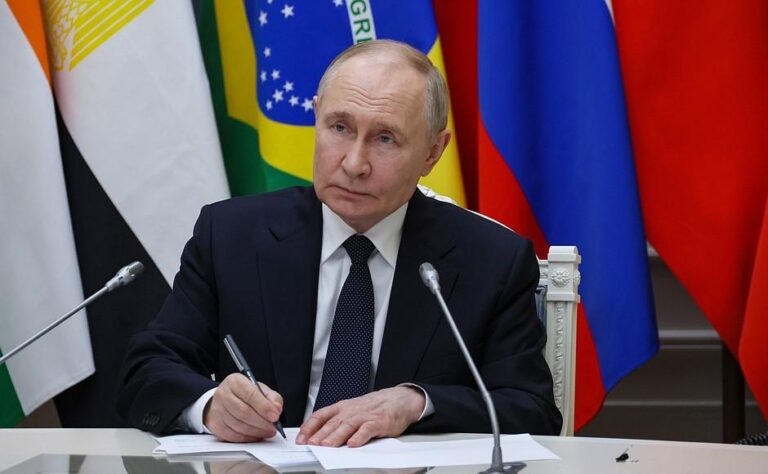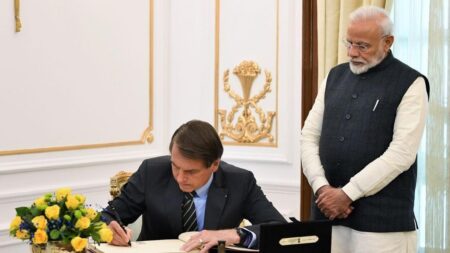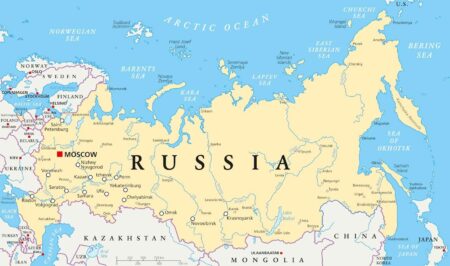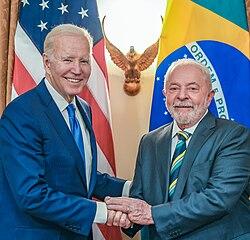The annual BRICS summit has commenced in Brazil amid a backdrop of intensifying global economic and geopolitical challenges. As leaders from Brazil, Russia, India, China, and South Africa convene to discuss cooperation and development, the gathering is notably overshadowed by escalating tariff policies implemented by former U.S. President Donald Trump’s administration, along with escalating tensions across the Middle East. These external pressures are expected to heavily influence discussions, underscoring the complex international landscape facing the bloc.
BRICS Leaders Convene in Brazil Amid Rising Global Economic Uncertainty
Amid escalating tensions stemming from recent U.S. tariff policies and escalating conflicts in the Middle East, the BRICS summit in Brazil has attracted heightened global scrutiny. Leaders from Brazil, Russia, India, China, and South Africa are expected to navigate a complex landscape of economic uncertainties while aiming to reinforce their collective influence on the world stage. With inflationary pressures and trade disruptions intensifying, BRICS representatives are prioritizing discussions on economic resilience, alternative trade alliances, and the diversification of supply chains.
The agenda, heavily influenced by geopolitical shifts, highlights several key focal points:
- Counteracting tariff repercussions: Strategies to mitigate the fallout from U.S. tariffs on emerging markets.
- Energy cooperation: Coordinated efforts to stabilize energy prices amid Middle East volatility.
- Digital currency initiatives: Exploring integrated financial technologies to reduce reliance on traditional Western-dominated systems.
- Strengthening intra-BRICS trade: Proposals to streamline customs and boost bilateral agreements.
| Issue | BRICS Response | Expected Outcome |
|---|---|---|
| Trump’s tariffs | Joint policy frameworks & trade realignment | Reduced economic vulnerability |
| Middle East tensions | Energy partnership agreements | Market stability |
| Global supply chain disruptions | Investment in regional manufacturing | Increased supply chain independence |
Impact of Trump’s Tariff Policies on Emerging Market Collaborations Explored
President Trump’s aggressive tariff policies have introduced significant uncertainties in the dynamics of emerging market collaborations, particularly among BRICS nations. These protectionist measures have disrupted traditional trade flows, compelling countries like Brazil, Russia, India, China, and South Africa to reevaluate their partnerships and seek more resilient, intra-bloc trade agreements. With the looming threat of increased import costs and retaliatory tariffs, supply chains are being realigned, leading to both short-term economic jitters and long-term strategic recalibrations.
Key consequences observed include:
- A marked slowdown in cross-border investment initiatives within the BRICS bloc
- Heightened focus on regional trade agreements to circumvent U.S. tariffs
- Acceleration in diversification of supply sources away from traditional U.S.-centric routes
| Country | Tariff Impact | Adjusted Strategy |
|---|---|---|
| Brazil | High (Agricultural exports hit) | Boosting intra-BRICS agribusiness partnerships |
| India | Moderate (Manufacturing costs increased) | Expanding South-South trade alliances |
| China | Severe (Trade war escalation) | Investing heavily in Belt and Road countries |
| Russia | Low (Energy exports less affected) | Enhancing Eurasian Economic Union ties |
| South Africa | Moderate (Mineral exports fluctuating) | Pursuing diversified export markets |
Diplomatic Strategies Proposed to Mitigate Middle East Tensions During Summit
Leaders attending the BRICS summit emphasized the urgent need for enhanced diplomatic engagement to ease rising tensions in the Middle East. Key proposals centered around reopening multilateral dialogue channels and reinforcing commitments to conflict de-escalation through neutral mediation efforts. Emphasizing collaborative security frameworks, several member nations advocated for the establishment of a dedicated peace task force aimed at monitoring ceasefires and preventing further civilian casualties.
In an effort to foster lasting stability, delegates outlined a multi-pronged approach including:
- Expanding humanitarian aid corridors supported by all BRICS countries
- Encouraging economic partnerships that promote regional development
- Facilitating high-level diplomatic exchanges among conflicting parties
- Leveraging technological cooperation for improved intelligence sharing on extremist threats
| Strategy | Objective | Expected Impact |
|---|---|---|
| Peace Task Force | Monitor ceasefires | Reduce escalation |
| Humanitarian Corridors | Ensure aid delivery | Alleviate civilian suffering |
| Economic Partnerships | Promote growth | Stabilize regions |
| Diplomatic Exchanges | Dialogue facilitation | Build trust |
Future Outlook
As the BRICS summit in Brazil concludes, the gathering underscored the complex geopolitical landscape shaping international relations today. Amid mounting concerns over Trump’s tariff policies and escalating tensions in the Middle East, member nations face the challenge of balancing economic cooperation with global instability. The outcomes of this summit will likely influence not only the future of the BRICS alliance but also broader dynamics in trade and diplomacy moving forward. Shoreline Media Group will continue to monitor developments as these global issues evolve.




